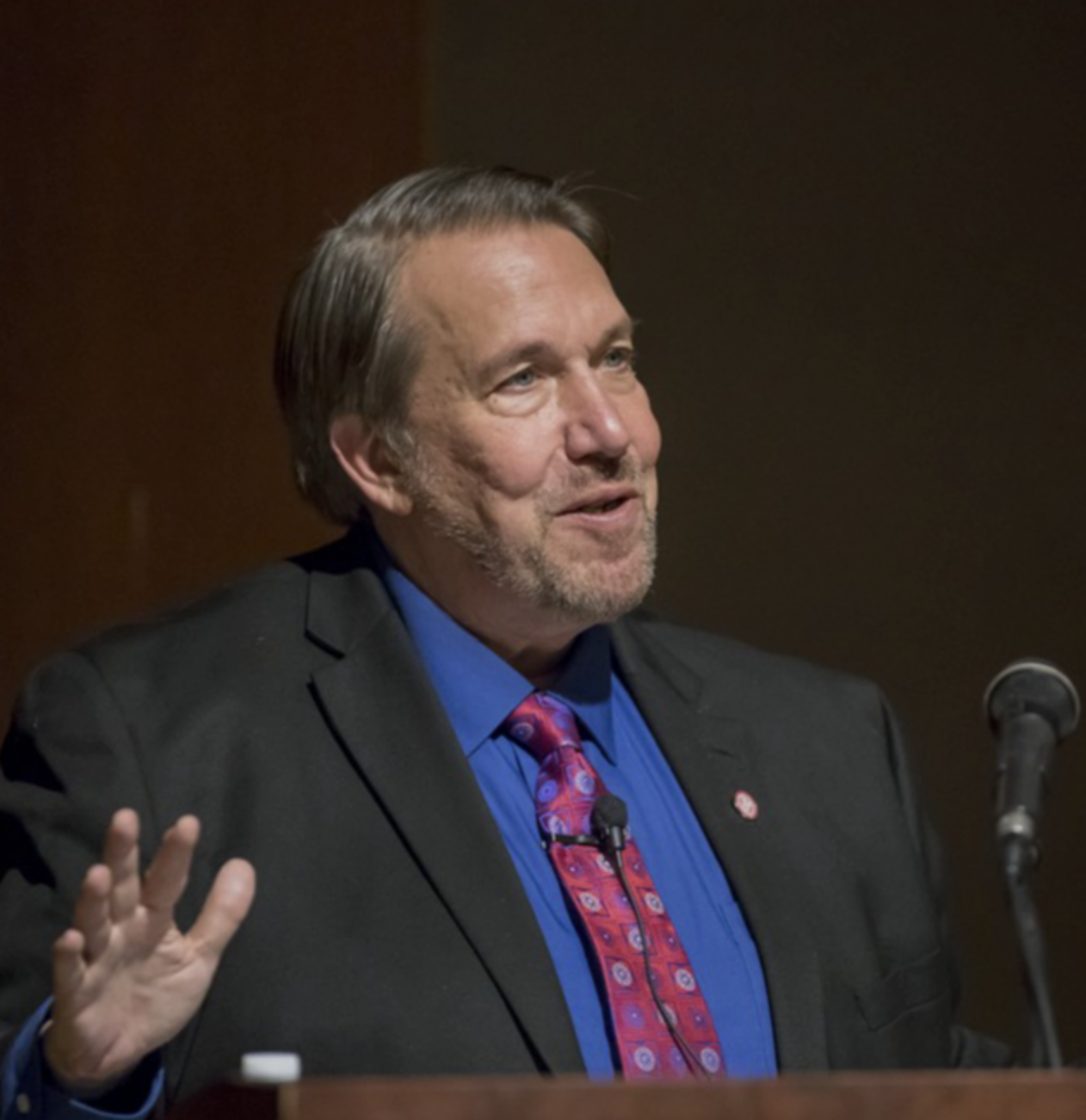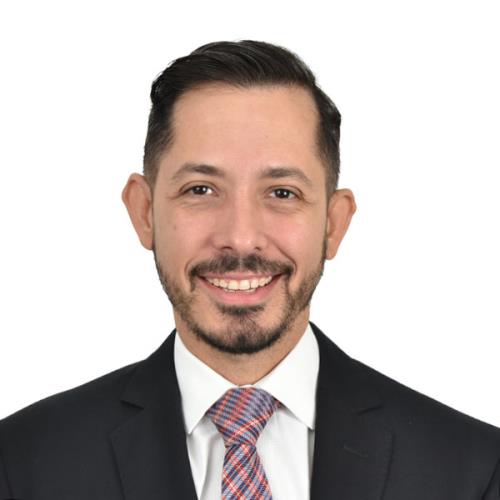Cybersecurity and resilience
South School on Internet Governance
Session 521
Development of cyber capacities in the emerging economies
Capacity building is essential for enhancing cybersecurity in developing countries. By providing education, training, technical infrastructure, and promoting awareness and collaboration, capacity building initiatives can help to build stronger, more resilient cybersecurity programs that can effectively protect individuals, organizations, and national security interests.
Developing countries often lack sufficient cybersecurity expertise, including skilled personnel who can design, implement, and maintain effective cybersecurity programs. Capacity building efforts can help to address this shortage by providing training and education to local professionals.
In relation with infrastructure, developing countries may also have limitations, such as secure networks and systems. Capacity building programs can help to build technical infrastructure that is necessary for effective cybersecurity. Many individuals and organizations in developing countries may not fully understand the importance of cybersecurity or the potential risks and threats they face. Capacity building initiatives can help to raise awareness and understanding of these issues, and promote good cybersecurity practices.
Cybersecurity threats are often global in nature and require collaboration and coordination between countries and organizations. Capacity building programs can help to foster relationships and partnerships between different stakeholders, including governments, private sector organizations, and civil society groups.

Olga Cavalli is an Internet leader whose work has been fundamental for enhancing participation of Latin America and the Caribbean in Internet Governance. Presently she is the Cybersecurity National Director of Argentina. On the academic side, she is the co-founder and the academic director of the South School on Internet Governance which has granted thousands of fellowships for attending an intensive training on Internet Governance, organized in different countries of the Americas since 2008. The School is also open to the community through remote participation with video streaming and different languages, hosting thousands of attendees from all over the world. She is also the co-founder of other capacity-building activities: Dominios Latinoamerica, ARGENSIG, the Argentina School on Internet Governance and Desafíos de Internet, among other webinars and training activities.
She co-edited the book “Internet Governance and Regulations in Latin America” published in commemoration of the 10th anniversary of the South School on Internet Governance. The book is free and available for the whole community in three languages: Spanish, Portuguese and English.
Olga is frequently invited as keynote speaker and panellist in international summits and events. In occasion of the IGF 2019 organized in Berlin, the German Government invited her to participate in the IGF 2019 Berlin promotional video, which includes personalities like Angela Merkel and Vint Cerf, among others. She is also a frequent contributor writing papers and chapter books in subjects related to her areas of expertise.
Since 2006 Olga has been very active in ISOC. Between 2016 and 2021 she served as a member of the ISOC Board of Trustees. She is an ISOC Argentina Chapter board member, and was the ISOC Argentina Chapter´s president (2015–2018) and the Chapter´s Board Secretary (2011–2015). She was also a member of the ISOC Chapter Advisory Council representing Latin America and the Caribbean, among other activities.
Recognized by ISOC as a “Game Changer”, Olga works towards the inclusion of girls and women in ICTs and the Internet, organizing activities jointly with ISOC, ISOC Argentina Chapter, ITU, UNESCO, ICANN, the Argentina National Center of Engineers and the University of Buenos Aires. As an Internet expert, she was invited by ITU to participate in the Study Group on Internet of Things and Smart Cities (2015-2017). The ITU has recognized her as an innovator in this field.
During 2007- 2014 she was distinguished by the United Nations Secretary General, being chosen to be a part of the Internet Governance Forum's Multistakeholder Advisory Group, MAG. Olga is very active in ICANN. Presently she is ccNSO Council Member. She was co-lead of Work Track 5 on Geographic Names at the Top Level and Vice Chair of the Governmental Advisor Committee (GAC). She was a member of the Cross Community Working Group on Accountability for the IANA transition, GNSO vice chair, a member of the LAC Regional committee, among other activities. Olga is a Professor at the University of Buenos Aires and is also involved in the development of community network projects in rural areas of Argentina. Olga was a member of the IGF Argentina committee.
Previously she was a member of the LAC IGF committee, the representative of Argentina in the WSIS (Tunis 2005), a member of the Committee of the Regional Action Plan eLAC - ECLAC for the Information Society in Latin America and the Caribbean (2010-2015), coordinator of the REGULATEL IDB Regional Roaming Project (2010-2013), member of the National Commission of Cyber Crime which defined the Cyber Crime Law of Argentina (2008-2009), member of the Commission that created the National Digital Agenda of Argentina (2008-2009) and Board member of the National Engineers Center of Argentina.
Her education includes a PhD in Business Direction, a master’s degree in Business Administration, a master’s degree in Telecommunications Regulation, and a degree in Electronic and Electric Engineering. She is fluent in Spanish, English, Portuguese and German, and can understand French and Italian. Olga lives in Buenos Aires and is the mother of Juana and Federico.
_21.29.55.png?maxwidth=500)
Chris Painter is a globally recognized leader and expert on cybersecurity and cyber policy, Cyber Diplomacy and combating cybercrime. He has been on the vanguard of U.S. and international cyber issues for over twenty five years—first as a prosecutor of some of the most high-profile cybercrime cases in the country and then as a senior official at the Department of Justice, FBI, the National Security Council and finally the State Department. He has initiated, helped drive, or advised on virtually every major U.S. cyber policy for over a decade and has created innovative new organizations and approaches to deal with threats and take advantage of opportunities in cyberspace.
In his most recent role as the nation’s top cyber diplomat, Mr. Painter coordinated and led the United States’ diplomatic efforts to advance an open, interoperable, secure and reliable Internet and information infrastructure and advised the Secretary and Deputy Secretary of State on these emerging issues.
Prior to joining the State Department, Mr. Painter served in the White House as Senior Director for Cyber Policy and Acting Cyber Coordinator in the National Security Council. He was a senior member of the team that conducted the President’s Cyberspace Policy Review in 2009 and he subsequently helped create and then structure a new directorate in the National Security Council devoted to these issues.
Mr. Painter has been a frequent media spokesperson and presenter on cyber issues around the globe. He was named the Bartels World Affairs Fellow by Cornell University for 2017-2018 and chosen as a member of the Board of the Center for Internet Security. He is the recipient of the prestigious RSA Award for Excellence in the Field of Public Policy (2016), the Attorney General’s Award for Exceptional Service, the Intelligence Community Legal Award (2008) and has been named to the “Federal 100” list, among other honors. He is a graduate of Stanford Law School and Cornell University and clerked for US Circuit Judge Betty Fletcher.

Jaime Chanagá is an innovator in the technology industry and security, and works as Field Chief Information Security Officer (CISO) at Fortinet for Latin America and the Caribbean. He is passionate about helping organizations in the sector private, public and societal to address your most security challenges critical to ensure the success of your business. In this role, he works as an expert, lecturer and advisor to cybersecurity for organizations in the region. Jaime brings a solid track record as a trusted advisor on cybersecurity strategies for clients, along with an extensive experience in international markets, establishing global strategic alliances and leading programs of digital transformation.
Mr. Chanagá is a seasoned information security professional with an exceptional career history of more than 25 years in information security, technology, privacy, auditing, IT architecture, regulatory compliance, and IT governance. Throughout his career, he has had the privilege of serving and advising some of the world's most admired organizations in the United States, Canada, Europe and Latin America. His bibliographic production includes collaboration as co-author of the book Corporate Security in the Information Age (Aspatore).
He is also a member of InfraGard, a partnership between the FBI and the private sector. InfraGard includes businesses, academic institutions, state and local law enforcement and security agencies, and other participants engaged in sharing information and intelligence to prevent hostile acts and threats to the national security of the United States.
Chanagá is a Certified Information Systems Security Professional (CISSP – Certified Information Systems Security Professional). He is also a graduate of the U.S. FBI Citizens Academy, and volunteers as a Fusion Liaison Officer for the Department's North Texas Fusion Center (NTFC) of the Department of Homeland Security and is a volunteer member of the U.S. Secret Service Cyber Fraud Task Force. Jaime is trilingual and he is fluent in Spanish, English, and Portuguese.

Maryleana is a professional with an outstanding career in the area of Telecommunications and Information Technologies. Systems Engineer by the University of Costa Rica and with a master's degree in Administration of Technologies of Information by the Instituto Tecnológico y de Estudios Superiores de Monterrey, Mexico.
In 2009 she became a Member of the first Council of the Superintendency of Telecommunications (SUTEL), telecommunications regulatory body in Costa Rica, a position she held for 8 years, in two consecutive terms. During her management of her, she led and organized the process of opening the market of telecommunications and the development of regulatory institutions.
Before this position she worked for 6 years directly in the telecommunications industry, as project manager in Latin America. In 2017 she joined ASIET as an Expert Regulatory Advisor, an organization that she now leads since August 2019.

Legal expert specialized in business and new technologies law with more than 20 years of experience. Among his functions, he has served as Director of Cybersecurity, Electronic Commerce and Digital Signature of the Dominican Institute of Telecommunications. He has worked as Coordinator of the Working Groups of the Global Forum of Cyber Expertise, and is more recently serving as Regional Director of the Latin America and the Caribbean Cyber Competence Center (LAC4).
-
 C1. The role of governments and all stakeholders in the promotion of ICTs for development
C1. The role of governments and all stakeholders in the promotion of ICTs for development
-
 C2. Information and communication infrastructure
C2. Information and communication infrastructure
-
 C3. Access to information and knowledge
C3. Access to information and knowledge
-
 C4. Capacity building
C4. Capacity building
-
 C5. Building confidence and security in use of ICTs
C5. Building confidence and security in use of ICTs
-
 C11. International and regional cooperation
C11. International and regional cooperation
Building confidence and security in the use of ICTs is crucial for protecting personal information, preventing cyber-attacks, facilitating communication, and encouraging innovation.
In today's digital age, personal information is constantly being shared and stored online. Building confidence and security in the use of ICTs can help protect personal information from unauthorized access, use, and disclosure.
At the same time there are cyber-attacks happening all the time, which can have severe consequences, ranging from financial losses to reputational damage. Building confidence and security in the use of ICTs can help prevent cyber-attacks and reduce their impact.
Confidence and security in the use of ICTs can also encourage innovation, as people are more likely to use new technologies if they trust them.
The international and regional cooperation is also very important to exchange information, ways to stop attacks and build knowledge among different actors of the ecosystem.
-
 Goal 3: Ensure healthy lives and promote well-being for all
Goal 3: Ensure healthy lives and promote well-being for all
-
 Goal 4: Ensure inclusive and equitable quality education and promote lifelong learning opportunities for all
Goal 4: Ensure inclusive and equitable quality education and promote lifelong learning opportunities for all
-
 Goal 8: Promote inclusive and sustainable economic growth, employment and decent work for all
Goal 8: Promote inclusive and sustainable economic growth, employment and decent work for all
-
 Goal 9: Build resilient infrastructure, promote sustainable industrialization and foster innovation
Goal 9: Build resilient infrastructure, promote sustainable industrialization and foster innovation
-
 Goal 11: Make cities inclusive, safe, resilient and sustainable
Goal 11: Make cities inclusive, safe, resilient and sustainable
-
 Goal 17: Revitalize the global partnership for sustainable development
Goal 17: Revitalize the global partnership for sustainable development
Building resilient infrastructure, promoting sustainable industrialization, and fostering innovation are all critical for achieving sustainable development, promoting economic growth, and creating a better future for all.
Resilient infrastructure is essential for ensuring that people have access to critical services, such as healthcare, education, and emergency response, especially during times of crisis or disaster. It also helps to build economic resilience, which can help communities recover from shocks and promote long-term growth.
Sustainable industrialization: Sustainable industrialization helps to create jobs, drive economic growth, and promote technological innovation, while also reducing the negative impacts of industrial activity on the environment and society. It also helps to promote social equity and reduce poverty by creating opportunities for people to participate in the economy.
Innovation is essential for driving progress and solving complex problems. It helps to create new products and services, improve efficiency, and enhance quality of life. Innovation can also help to reduce negative environmental impacts and promote social equity by creating new opportunities for people to participate in the economy.
South School on Internet Governance
@SSIGLAC
https://www.gobernanzainternet.org/
Book "Internet Governance and Regulations in Latin America"
English version
https://www.gobernanzainternet.org/book/
The GFCE
https://thegfce.org/
Fortinet
https://www.fortinet.com/lat
ASIET
https://asiet.lat/
LAC4.eu
https://www.lac4.eu/